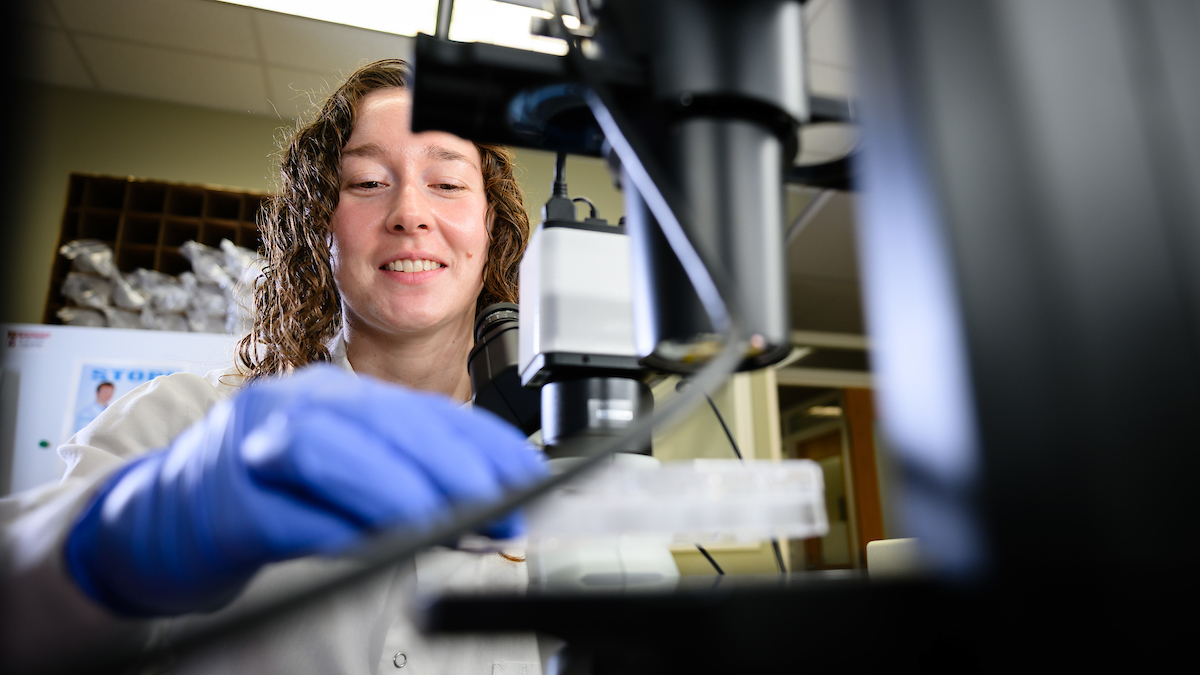Summer Trip to Guatemala
[attribution]by Melissa Fleishmann, DVM Class of 2012[/attribution]
From May 22 to July 11, 2009 I participated in a study abroad program through NC State’s School of Social Work. This program consisted of a seven week homestay with a Mayan family, one-on-one Spanish language classes, and a service learning placement with a local NGO (Non Governmental Organization).
Students travelled individually to Guatemala City, where we were met at the airport by the program director and her assistant. The next day we travelled to Panajachel, a small town on the shore of Lake Atitlan, in the highlands of Guatemala. After a brief orientation students were individually placed into their homestays with Mayan families in towns surrounding the lake.
The opportunity to live with a Mayan family is one of the unique aspects of this program. The Maya have maintained a very strong cultural identity, and many still wear their traditional dress, called traje, and speak a Mayan dialect as their first language. My family was fairly typical of the program. They were a married couple with three children in a small house, and extended family living nearby. The grandmother spoke almost no Spanish, the parents spoke Q’uiche to each other and Spanish to me and the children, and the children preferred to communicate in Spanish. The women wore traditional dress, while the younger men and boys have adopted the cheaper, readily available “American” style of dressing.
Language classes took place at one of the many Spanish language schools in the area. Guatemala is considered an excellent place to learn Spanish because the Spanish spoken there is relatively unchanged from formal “textbook” Spanish, and it is pronounced with little to no regional accent. Classes were one-on-one with a native speaker, and met for four hours a day for about four weeks. Gradually classes were phased out, and students had the opportunity to work more at their service learning placements.
 I was placed with an NGO called Mayan Families, which has many programs to benefit the indigenous people of the Guatemalan highlands, including an animal welfare program. This program works to reduce animal suffering through education and low cost/free monthly spay neuter clinics. During my summer in Panajachel, I helped rename and reorganize the program (formerly known as “Healthy Pets”, although the many street animals it helps are neither healthy nor pets) now called “Hope for the Animals”, and designed a logo and t-shirts for fundraising. I participated in two spay neuter clinics which were held by the only licensed veterinarian in Panajachel with the assistance of veterinary students from the university in Guatemala City. These clinics were free for those who can’t pay, and are funded entirely by Mayan Families through private donations. The surgeries were performed rapidly and economically, using easily mastered surgical techniques that are different from those used in the United States. Watching these surgeries provided an interesting perspective, but little transferrable clinical expertise.
I was placed with an NGO called Mayan Families, which has many programs to benefit the indigenous people of the Guatemalan highlands, including an animal welfare program. This program works to reduce animal suffering through education and low cost/free monthly spay neuter clinics. During my summer in Panajachel, I helped rename and reorganize the program (formerly known as “Healthy Pets”, although the many street animals it helps are neither healthy nor pets) now called “Hope for the Animals”, and designed a logo and t-shirts for fundraising. I participated in two spay neuter clinics which were held by the only licensed veterinarian in Panajachel with the assistance of veterinary students from the university in Guatemala City. These clinics were free for those who can’t pay, and are funded entirely by Mayan Families through private donations. The surgeries were performed rapidly and economically, using easily mastered surgical techniques that are different from those used in the United States. Watching these surgeries provided an interesting perspective, but little transferrable clinical expertise.
One of the highlights of my experience was getting to attend the national meeting of the World Society for the Protection of Animals in Guatemala City. The meeting was attended by animal welfare organizations from around the country, a committed group of Guatemalan nationals dedicated to reducing animal suffering within their own country. This meeting took place entirely in Spanish, and while some of the nuances may have been lost on me, it was an incredible opportunity to learn about cultural perspectives on animal welfare. Groups there ranged from those crusading to help working equines in the rural, indigenous highlands while respecting Mayan traditions to representatives from the country’s only animal shelter.
While in Guatemala I had a chance to visit a sea turtle refuge on the coast, as well as several social justice organizations such as orphanages and a women’s weaving co-op. Through the Social Work program I studied Guatemalan history, particularly the recent Civil War, and I learned much about the culture and current issues in gender, culture, class, and economic disparities.
This summer abroad program is an excellent opportunity to learn Spanish while engaged in meaningful, socially beneficial work. The Social Work program provides just enough framework and organization that inexperienced travelers can feel comfortable, and the course work teaches a greater understanding of regional problems, and imparts a global perspective to students. While other programs may offer more hands on clinical experience, I learned a lot about social reform and the workings of NGOs while experiencing another culture and country.


